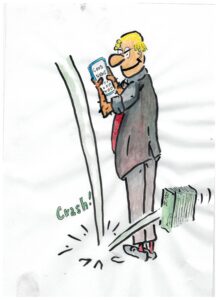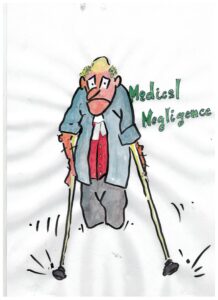Recovery on a quantum meruit
- 2016-03-06
- By whiggs
- Posted in Home Building Law
Jason and Michelle Zammit trading as Zammit’s Quality Constructions v Saul Markunsky and Shereen Markunsky [2015] NSWCATCD 21
Section 92 (2) of the Home Building Act states as follows:
‘A person must not demand or receive a payment under a contract for residential building work (whether as a deposit or other payment and whether or not work under the contract has commenced) from any other party to the contract unless:
(a) a contract of insurance that complies with this Act is in force in relation to that work in the name of the person who contracted to do the work, and
(b) a certificate of insurance evidencing the contract of insurance, in a form prescribed by the regulations, has been provided to the other party (or one of the other parties) to the contract.’
Section 94(1) of the Act states as follows:
‘(1) If a contract of insurance required by section 92 is not in force, in the name of the person who contracted to do the work, in relation to any residential building work done under a contract (the uninsured work), the contractor who did the work:
(a) is not entitled to damages, or to enforce any other remedy in respect of a breach of the contract committed by any other party to the contract, in relation to that work, and
(b) is not entitled to recover money in respect of that work under any other right of action (including a quantum meruit).’
Section 94(1A) of the Act states as follows in connection with the above sections:
‘(1A) Despite section 92 (2) and subsection (1), if a court or tribunal considers it just and equitable, the contractor, despite the absence of the required contract of insurance, is entitled to recover money in respect of that work on a quantum meruit basis.’
The effect of the above sections is that builder are not entitled to recover on their claim for money due under the contracts they allege were entered into with owners. Further, builders will not be entitled to recover on a quantum meruit for the work they allege that they have carried out for owners and not been paid for unless recovery be deemed just and equitable.
Section 94(1A) of the Act was considered by Barrett J in Eddy Lau Constructions Pty Ltd v Transdevelopment Enterprise Pty Ltd [2004] NSWSC 273. At paragraphs 43 – 61 of his judgement his honour considered the ‘just and equitable criterion under section 94(1A)’ of the Act and the factors bearing upon the just and equitable assessment.
In considering the just and equitable criterion Barrett J. referred to a number of authorities which establish that the words just and equitable are of wide significance. His honour referred to a passage of the judgement of Sheller JA in Stephenson v State Bank of NewSouth Wales (1996) 39 NSWLR 101 where his honour quoted from a decision of the High Court in Talga v MBC International Limited(1976) 133 CLR 622.
The passage quoted was:
‘Stephen, Mason and Jacobs JJ dealing with the issue raised for the Court by the Banking Act 1974 of whether it was just and equitable that a transaction should be treated as valid, said: ‘The court will have before it an existing transaction replete with all its surrounding facts and circumstances and in their light will determine what is just and equitable. In doing so it will certainly be exercising a wide discretion that this is a commonplace of the curial process; the court will be bound to act judicially, exercising its discretion by reference only to such considerations affecting the transaction as, on an examination of the legislation, may be seen to be material to the decision which it is called on to make. Irrelevant matters, matters such as the plaintiffs instanced in the course of argument, which have no rational connection with the policy of the regulations but would be expressive only of the personal predilections of the Court, cannot be allowed by it to play any part in its decision.’
Barrett J. observed that this approach was endorsed by Campbell J in Sullman v Sullman [2002] NSWSC 169.
At paragraph 49 of his judgement Barrett J. stated in connection with section 94(1A) of the Act:
‘The inquiry directed by the statute is therefore, in effect, whether the surrounding circumstances are such as to justify the creation of a right and an obligation as to the payment of the sum separately determined to represent fair remuneration. The Act, as I see it, does not attempt to control quantification. That is left to the general principle imported by the expression “quantum meruit”. The Act is concerned with factors influencing a decision whether, in the particular circumstances in which the court finds the parties, it is fair that one receive the quantum meruit sum and the other pay it.’
Decision of Hall J in Pender v Robwenphi Pty Limited & Anor [2008] NSWSC 1144. In that case Hall J stated, commencing at paragraph 41, in connection with the decision of Barrett J in Eddy Lau Constructions Pty Ltd vTransdevelopment Enterprise Pty Ltd:
‘In relation to the analysis undertaken by Barrett J in Eddy Lau Constructions (supra), the following propositions may be derived from the judgment:-
(1) The words “just and equitable” are of the widest significance and involve evaluations of questions of fact.
(2) In exercising the wide discretion under the provision, a Court or Tribunal is to have regard to considerations affecting the particular transaction as are material to the decision to be made. Irrelevant matters are those that have no rational connection with the policy of the statutory requirement.
(3) The statutory discretion under s.94(1A) must be exercised judicially in light of the whole of the circumstances surrounding the relevant subject matter.
(4) Inquiry is directed to ascertaining whether the surrounding circumstances are such as to justify the creation of a right and an obligation as to the payment of the sum separately determined to represent fair remuneration.
(5) The Act is concerned with factors influencing a decision whether, in the particular circumstances in which the Court finds the parties, it is fair that one receive the quantum meruit sum and the other pay it.
It is apparent from the analysis by Barrett J in Eddy Lau Constructions (supra) that the conduct of the party in breach is an important matter for consideration. In that respect, ignorance or oversight of the statutory requirement under the Act stands in marked contrast to a contravention that is wilful or deliberate.
In the present case, the determination of the Tribunal was, in effect, that the first defendant’s contravention was an inadvertent one, it being a company accustomed to undertaking commercial and industrial work and not home building or renovation work. The Tribunal accepted, as it was entitled to, the evidence given which explained the first defendant’s ignorance or inadvertence. These were matters of fact for the Tribunal’s determination.
In the circumstances of the present matter, on the evidence there was no identification of any particular form of disqualifying conduct by or on behalf of the first defendant that was material to be taken into account in determining what was “just and equitable”.
The Tribunal was also entitled to have regard, as Barrett J did in Eddy LauConstructions (supra) to the fact that, if the first defendant was not granted relief under s.94(1A), the plaintiff would receive the benefit of the work undertaken by the first defendant without having to pay for that work and for the materials supplied. I will return to this issue of “benefit” below.
Finally, there was no factor establish(ed) that resulted in any detriment flowing to the plaintiff by reason of the particular breaches or contraventions by the first defendant. Again, such matters involve a factual determination for the Tribunal.’
SEARCH BLOG POSTS
LATEST BLOG POSTS
- Updated product safety mandatory reporting guidance for suppliers now available
- Pleading fraud – cause and effect is essential
- Does the Trustee’s right of indemnity have priority over the right of beneficiaries in relation to assets?
- Rules of war (in a nutshell) | The Laws Of War
- MH370 Final Report
Past Blog Posts
- December 2021
- September 2021
- August 2021
- May 2021
- April 2021
- March 2021
- August 2020
- February 2020
- September 2019
- February 2019
- December 2018
- July 2018
- April 2018
- December 2017
- May 2017
- February 2017
- December 2016
- November 2016
- October 2016
- September 2016
- August 2016
- April 2016
- March 2016
- October 2015
- September 2015
- August 2015
- May 2014
- April 2014
- March 2014
- January 2014
Categories
- Appeals
- Artificial Intelligence
- Aviation law
- Banking and Finance Law
- Blogs
- Civil Liability Act
- Class Actions
- Coding for lawyers
- common law
- Consumer Claims (TPA)
- Contract Law
- Contractual Interpretation
- Criminal law
- Deeds
- Docassemble
- duty of care
- Engineering Law
- Equity
- Evidence
- Exclusion Clauses
- Execution of documents
- Expert Witness
- featured
- Financial Services
- Fraud
- Fundraising (Chapter 6D)
- General comment
- Home Building Law
- Insurance
- Legal drafting
- Local Court
- Medical Negligence
- MH370
- Motor Accidents
- Negligence
- Occupiers negligence
- Other
- Personal Injury
- Personal Property Securities (PPSA)
- Pleading
- Practice & Procedure
- Products Liability
- Property
- Real Property
- Reasons for a decision
- Securitisation
- Security (Mortgages & Charges)
- Sentencing
- Swaps & Derivatives
- Teaching
- Transactional Law
- Transfer of financial assets in transactions
- Trusts & Trustee Law
- Uncategorized
- War and Weaponry
- Witnesses
SEARCH BLOG POSTS
LATEST BLOG POSTS
- Updated product safety mandatory reporting guidance for suppliers now available
- Pleading fraud – cause and effect is essential
- Does the Trustee’s right of indemnity have priority over the right of beneficiaries in relation to assets?
- Rules of war (in a nutshell) | The Laws Of War
- MH370 Final Report
Past Blog Posts
- December 2021
- September 2021
- August 2021
- May 2021
- April 2021
- March 2021
- August 2020
- February 2020
- September 2019
- February 2019
- December 2018
- July 2018
- April 2018
- December 2017
- May 2017
- February 2017
- December 2016
- November 2016
- October 2016
- September 2016
- August 2016
- April 2016
- March 2016
- October 2015
- September 2015
- August 2015
- May 2014
- April 2014
- March 2014
- January 2014
Categories
- Appeals
- Artificial Intelligence
- Aviation law
- Banking and Finance Law
- Blogs
- Civil Liability Act
- Class Actions
- Coding for lawyers
- common law
- Consumer Claims (TPA)
- Contract Law
- Contractual Interpretation
- Criminal law
- Deeds
- Docassemble
- duty of care
- Engineering Law
- Equity
- Evidence
- Exclusion Clauses
- Execution of documents
- Expert Witness
- featured
- Financial Services
- Fraud
- Fundraising (Chapter 6D)
- General comment
- Home Building Law
- Insurance
- Legal drafting
- Local Court
- Medical Negligence
- MH370
- Motor Accidents
- Negligence
- Occupiers negligence
- Other
- Personal Injury
- Personal Property Securities (PPSA)
- Pleading
- Practice & Procedure
- Products Liability
- Property
- Real Property
- Reasons for a decision
- Securitisation
- Security (Mortgages & Charges)
- Sentencing
- Swaps & Derivatives
- Teaching
- Transactional Law
- Transfer of financial assets in transactions
- Trusts & Trustee Law
- Uncategorized
- War and Weaponry
- Witnesses




